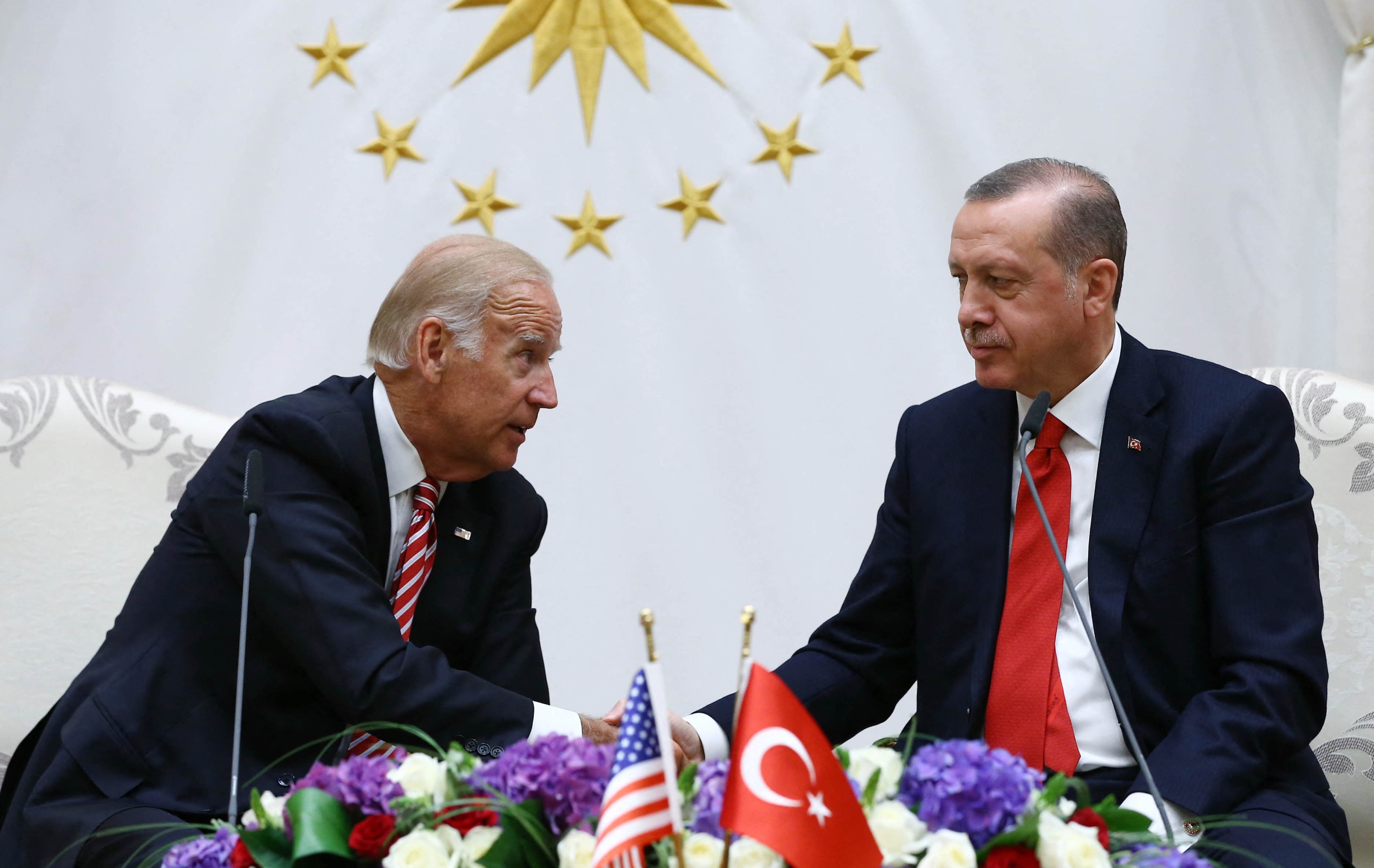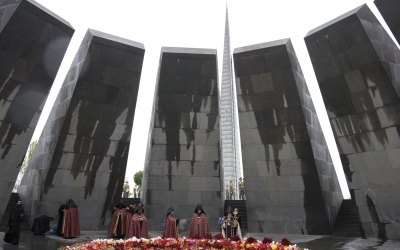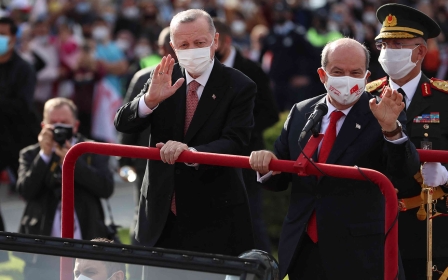Biden tells Erdogan he will recognise Armenian genocide: Turkish official

US President Joe Biden has informed his Turkish counterpart, Recep Tayyip Erdogan, that he intends to recognise the mass killings of Armenians during the First World War as a genocide, a Turkish official has told Middle East Eye.
The declaration, expected to be announced on Saturday, coinciding with Armenian Genocide Remembrance Day, will likely add tension to the already uneasy relationship between Washington and Ankara.
"Erdogan has given the appropriate response to this," the Turkish official, who spoke on condition of anonymity told MEE.
"There would be a strong-worded statement from Ankara if Biden makes such an announcement."
The official said both presidents were calm during their phone call on Friday, but Erdogan voiced his strong rejection of Biden's reported intended announcement.
New MEE newsletter: Jerusalem Dispatch
Sign up to get the latest insights and analysis on Israel-Palestine, alongside Turkey Unpacked and other MEE newsletters
A White House statement describing the call earlier in the day did not mention the genocide declaration.
"President Joseph R. Biden spoke today with Turkish President Recep Tayyip Erdogan, conveying his interest in a constructive bilateral relationship with expanded areas of cooperation and effective management of disagreements," the White House said.
The statement confirmed the two leaders would meet on the sidelines of a Nato summit in Belgium in June.
Bloomberg first reported earlier on Friday that Biden had communicated to Erdogan his intention to label the killings a genocide.
The killings
An estimated 1.5 million Armenians were killed in Ottoman-controlled territory between 1915 and 1923, the majority before 1919, through systematic deportations, starvation and murder.
Most of the killings took place during the First World War. Turkish forces subsequently fought against allied forces, including France, the UK and Russia, which intended to occupy and partition Anatolia during what Turkey calls the Turkish War of Independence.
The description of the mass killings as "genocide" is a sensitive issue for Turkish leaders.
While Turkey acknowledges that many Armenians died during the conflicts, the Turkish government denies that the killings were part of a campaign of systemic mass murder. Azerbaijan likewise disputes the term.
However, about 30 countries recognise the genocide, including France, Canada, Brazil, Germany, Russia, Poland and the Netherlands.
Other countries, such as the UK, have condemned the killings, but believe that they do not meet the definition of genocide as defined by the 1948 UN Convention on Genocide.
Successive US administrations have held back from describing the mass killings as a genocide. Turkey, a Nato member since 1952, has enjoyed close ties with the United States throughout its modern history. The country hosts US nuclear weapons at its Incirlik Air Base.
If Biden does make the declaration as expected on Saturday, he would be the first US president to describe the massacre as a genocide since Ronald Reagan, who called the killings a genocide in a passing reference in 1981.
As a candidate last year, Biden pledged to make the recognition official if elected.
"Like the genocide of the Armenians before it, and the genocide of the Cambodians which followed it - and like too many other such persecutions of too many other peoples - the lessons of the Holocaust must never be forgotten," Biden said in a statement marking the 2020 Armenian Genocide Remembrance Day.
In 2019, Congress passed a resolution recognising the mass killings as a genocide with overwhelming bipartisan support. Former president Donald Trump refused to sign the recognition.
Middle East Eye delivers independent and unrivalled coverage and analysis of the Middle East, North Africa and beyond. To learn more about republishing this content and the associated fees, please fill out this form. More about MEE can be found here.





